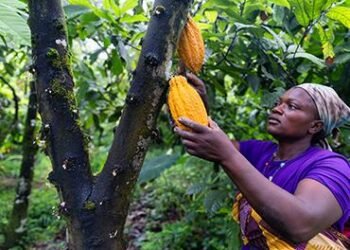A new watermelon seed has been introduced to farmers in the North East region to help boost production, their incomes and ensure nutrition for consumers.
ELGHALI is said to be a type of watermelon seed that yields bountifully and produces voluminous watermelons. It bears a hybrid watermelon with a beautiful round oval shape, with fruit weight of more than 12 kilogrammes, which is a large fruit size. According to sources, its fruit is usually crisp, very sweet, tasty, and highly preferred by farmers.
The seed was introduced by Syngenta Vegetable Seeds, a leading vegetable company worldwide with a branch in Ghana. Representatives with the company took farmers and other stakeholders to a field of ELGHALI at Walewale in the West Mamprusi Municipality of the North East Region to introduce them to the seed.

The field day brought together over 70 farmers, input dealers, marketers, extension officers, processors and researchers to evaluate the performance of the watermelon variety.
The Technical and Sales Representative of Syngenta Vegetable Seeds, Ghana, Mr. Evans Sackey, elaborated on the purpose of the field trip and spoke about the variety of the watermelon seed as well as its perishability. According to him, the ELGHALI is a quality seed that could last up to two weeks after harvest.
He further indicated that this would help reduce post-harvest losses, which has been a major challenge to watermelon farmers and all farmers on a large scale.
Syngenta Vegetable Seeds provides good quality seeds of okra, onions, cabbage, tomatoes, watermelon and many other vegetable seeds to farmers in the country.
Some farmers, who visited the field, were hopeful that they could make more money per acre of land, because of the size of the watermelon they saw.
Others stated that they had noticed while passing by a few that the watermelon on the field seemed to last longer while theirs get rotten quickly. They went on to express hope as they said they believe they could still sell even when market was not good because it could last more than a week without going bad.
Farmers in the area predominantly go into dry season farming of watermelon and supply consumers through fruit and vegetable sellers in most areas in northern Ghana and export to the South.
However, the farmers are faced with annual post-harvest challenges, especially quantities of watermelon getting rotten on farms and at sales point. Hence, the introduction of long spun variety of the fruit to farmers in the area, they say, will do a lot for them.





















